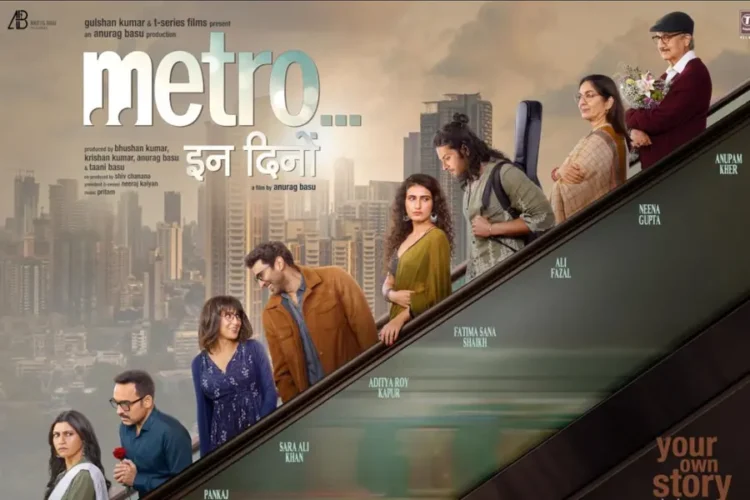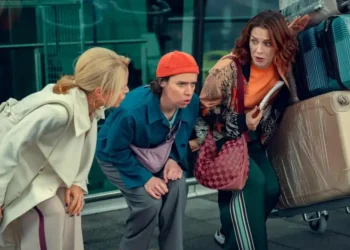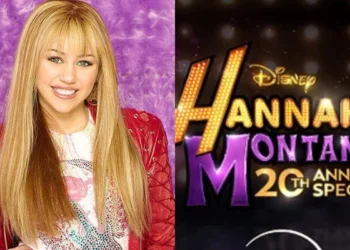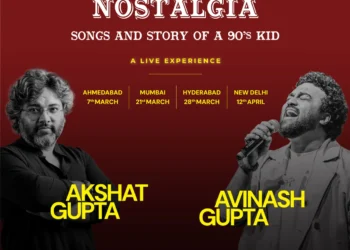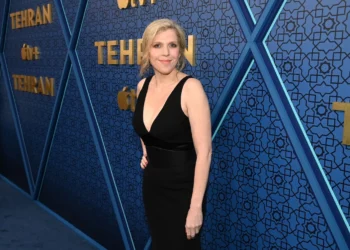Anurag Basu’s long-anticipated return to filmmaking with Metro… In Dino has generated a wave of emotional responses online since its theatrical debut on July 4. This film serves as a spiritual successor to his 2007 anthology Life in a… Metro, and many social media users have described it as a moving and heartfelt exploration of love, loneliness, and human connection in today’s world.
Nearly two decades after the original tackled the emotional tumult of urban life, Basu’s new installment revisits these themes from a fresh perspective and a modern viewpoint. Set against a vibrant city backdrop, Metro… In Dino intertwines various love stories across different age groups, each facing feelings of isolation, desire, and the transient nature of relationships.
Basu skillfully intertwines multiple narratives, much like varied emotions merging into a harmonious tune on an old radio. The film distinguishes itself with its subtlety—eschewing heavy dialogue and dramatic climaxes, it allows the visuals and moments to convey the story. In embodying the principle of “show, don’t tell,” Basu reaffirms his mastery. Each narrative unfolds like a cherished memory being gently revisited amidst the rain—soft, unhurried, and profoundly impactful.
- Kajol and Monty – The Erosion of Familiar Comfort
The heart of the film lies in the touching narrative of Kajol Ghosh (Konkona Sen Sharma) and Monty (Pankaj Tripathi), a middle-class couple with a long marriage and a teenage daughter grappling with her own struggles. Their relationship is marked by a lack of passion; it simply endures, quietly and painfully.
Upon discovering Monty’s activity on a dating app, Kajol uncovers not just a potential betrayal, but also years of silence, repressed anger, and a newfound courage to leave behind what no longer serves them. Konkona delivers a performance filled with subtlety and strength, while Pankaj Tripathi’s portrayal of Monty captures innocence and regret, evoking empathy even amidst his shortcomings.
Neena Gupta plays Kajol’s mother, embodying an older generation of women who equate love with sacrifice, yet she hopes her daughter won’t repeat her mistakes. Shashwat Chatterjee, as the father, provides a gentle reminder of the importance of second chances. The performances are woven together seamlessly, grounded, and profoundly human.
- Chumki and Parth – Young Love and Uncertain Futures
Sara Ali Khan as Chumki and Aditya Roy Kapur as Parth depict the ambiguous nature of contemporary relationships—intimacy without commitment and warmth devoid of labels. Chumki is spontaneous, restless, and searching, while Parth remains calm, grounded, and reflective. Their chemistry oscillates between unpredictability and magnetism.
Sara’s performance demonstrates significant growth from her earlier work, yet at times, she appears overshadowed by Aditya’s emotionally rich portrayal. Nonetheless, their interaction highlights the genuine dilemmas faced by today’s youth, caught between their emotions and fears.
- Shruti and Aakash – The Anxiety of Letting Go
Ali Fazal and Fatima Sana Shaikh portray a couple whose emotionally vacant relationship persists out of habit, fear, and unresolved feelings. Their storyline may be the most discomforting, yet it resonates with truth, reflecting many real-life couples who remain together not for love, but due to uncertainty about leaving.
Amidst these intense narratives, the delightful partnership of Neena Gupta and Anupam Kher provides a refreshing emotional respite. Their mature love story resembles the streets of old Kolkata—nostalgic, gentle, and filled with the quiet joys of life.
Behind the scenes
The narratives serve as the soul of Metro… In Dino, while the music acts as its heartbeat. Composers Pritam, Papon, and Raghav Chaitanya create melodies that do more than just accompany scenes; they enhance them. Each song flows like a river, seamlessly integrating into the film’s emotional landscape. The background score envelops each frame with a gentle, melancholic presence akin to the monsoon.
Anurag Basu’s direction is unmatched in its ability to capture the subtle intricacies of human emotion. He doesn’t craft heroes; he presents authentic individuals, complete with flaws, confusion, and moments of quiet grace. His mastery of storytelling and visual artistry is apparent in every shot. The cinematography, color palette, and chosen locations evoke the sensation of strolling through a cherished memory—tinged with sadness yet immensely comforting. The rain itself transforms into a character, symbolizing chaos, clarity, and renewal, infusing each story with emotional richness.
Final Verdict
If you’re seeking explosive action and rapid twists, Metro… In Dino might not satisfy. However, for viewers who cherish poignant, thought-provoking stories that resonate deeply, this film is ideal. It beautifully portrays ephemeral emotions – heartbreak, forgiveness, and reunion – with raw authenticity.
While not flawless – some characters could benefit from greater development, and certain narratives feel somewhat open-ended – this imperfection mirrors life itself, where closure isn’t always guaranteed. This is precisely where the film’s strength lies. You’ll exit the theater wanting more, a sentiment that truly distinguishes exceptional cinema.


